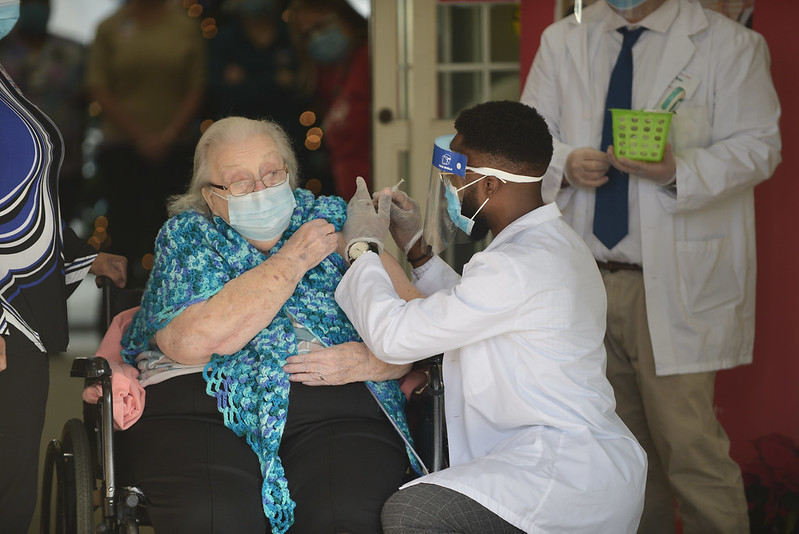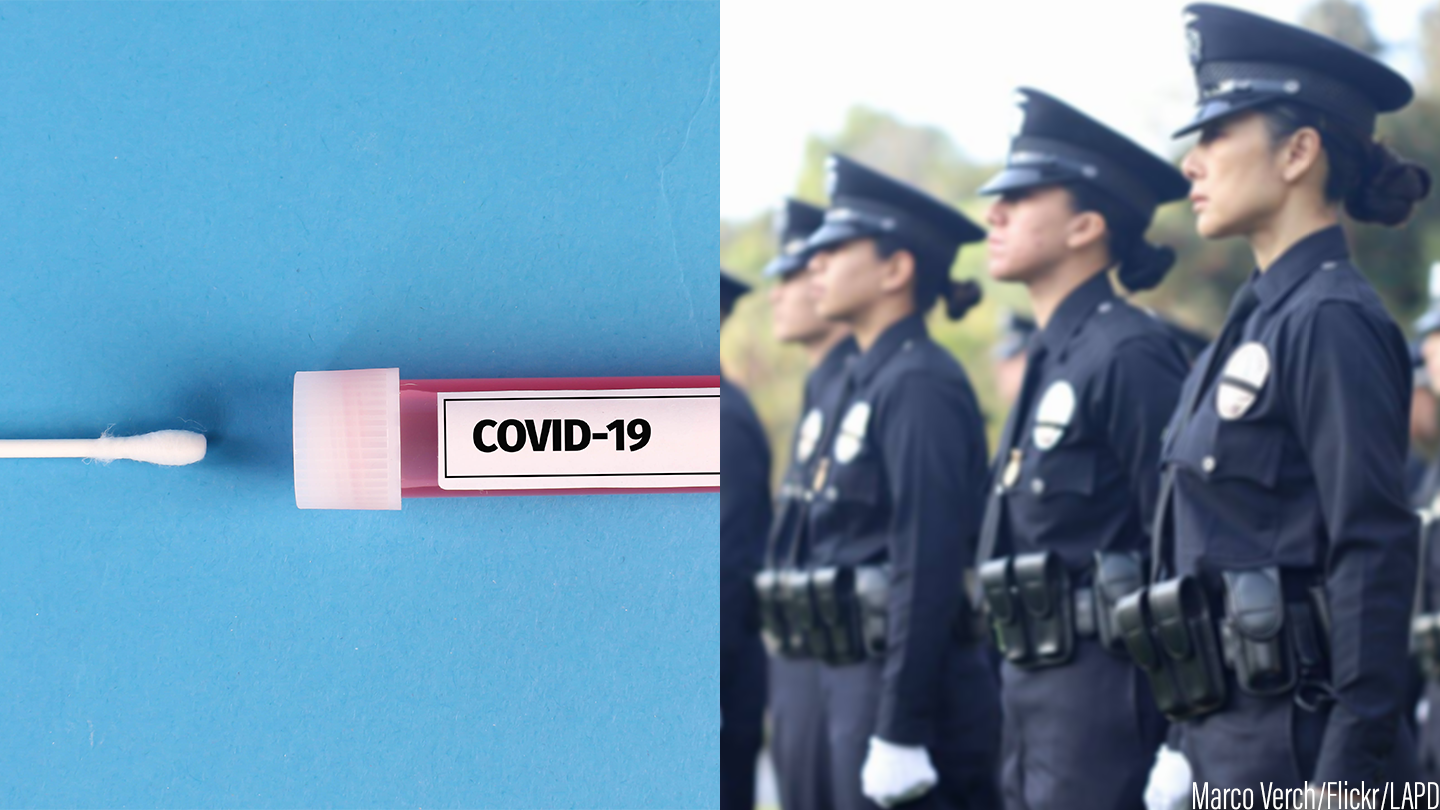As Los Angeles County continues to make steady progress decreasing transmission rates associated with the Omicron surge, the stark differences in COVID-19 outcomes between residents who are vaccinated and those who are not remain pronounced with unvaccinated residents significantly more likely to die from COVID-19 compared to vaccinated residents.
Through the week ending on Jan. 15, unvaccinated residents were 12 times more likely to die when compared to vaccinated residents, according to the Department of Public Health. These differences in COVID-19 mortality outcomes were magnified for older age groups.
For residents older than 50, the risk of dying significantly increased among those individuals who were unvaccinated. The 30-day death rate for unvaccinated residents between the ages of 50-64 was more than 15 times higher compared to fully vaccinated residents. For individuals 65 and older, unvaccinated residents were 24 times more likely to die compared to vaccinated residents.
And among the very small number of vaccinated and boosted individuals who died, 52% had an immunocompromising medical condition as a comorbidity
While vaccination status played a substantial role in the likelihood of severe outcomes for COVID-19 illness, poverty was also associated with a significantly increased risk of dying.
According to recent Public Health data, residents living in low-resourced communities were more than twice as likely to die from Covid-19 related complications compared to residents who lived in affluent communities.
Through Feb. 4, the 14-day age-adjusted death rate in parts of the county where more than 30% of the population lived at, or below, the federal poverty line was nine deaths per 100,000 residents. This was more than two times higher than in affluent communities with less than 10% of residents living at, or below, the poverty line where the 14-day adjusted death rate was four deaths per 100,000 residents.
“Our hearts remain with those families experiencing the sorrow of losing a loved one to COVID-19,” said Dr. Barbara Ferrer, Director of Public Health. “Despite the encouraging news of declining cases, test positivity and hospitalizations, sadly we continue to see a high number of people dying due to COVID-19. With an average of 70 deaths reported each day last week, it remains clear that residents who are unvaccinated, immunocompromised, or living in low-resourced communities, face additional risk and are more likely to become seriously ill and die from COVID-19.”
To reduce spread and keep workplaces and schools open, residents and workers are asked to:
- Adhere to masking requirements when indoors or at crowded outdoor spaces, regardless of vaccination status.
- Remain home when sick, isolate if they test positive and quarantine if they were in close contact with someone with COVID-19.
Residents are legally required to isolate themselves away from others if they test positive for COVID-19. Close contacts with symptoms and close contacts who are unvaccinated or not up to date with COVID-19 vaccinations need to follow quarantine requirements. For updated isolation and quarantine guidance, please visit www.publichealth.lacounty.gov.
COVID-19 vaccines are safe and effective and are recommended for everyone five years old and older to help protect against COVID-19. Vaccinations are always free and open to eligible residents and workers regardless of immigration status. Appointments are not needed at all Public Health vaccination sites and many community sites where first, second, and third doses are available.
To find a vaccination site near you, or to make an appointment, please visit:
- www.VaccinateLACounty.com (English)
- or www.VacunateLosAngeles.com (Spanish).
If you need assistance, you can also call 1-833-540-0473 for help.







